Technology previously depicted in science fiction is now a reality. Surprisingly, what might appear basic to us is the humble chatbot.
Chatbots have traditionally been employed for customer support, adept at resolving many customer or prospect inquiries.
But the landscape is evolving, with a growing emphasis on lead identification, activation, and conversion.
Looking at it from a marketing standpoint, chatbots streamline the efforts invested in inbound marketing campaigns, ensuring that every visitor to your website is engaged and activated.
This strategic shift aims to capitalize on the full potential of each site visitor, maximizing opportunities for conversion.
According to a report by Salesforce, 64% of customer service agents believe that chatbots and AI have improved their efficiency and overall performance in resolving customer issues.
They've grown far beyond their initial role as digital conversational assistants. Today, they serve as robust customer self-service solutions, empowering customers to navigate their journey with your brand independently, whether they need information or assistance.
Additionally, chatbots offer a cost-effective extension of your customer service strategies.
This brief guide will explain what chatbots are (in support contexts) and why businesses are starting to employ them.
What are Customer Support Chatbots?
Customer support chatbots are intelligent computer programs that simulate human-like conversations to assist and interact with customers.
These chatbots are engineered to comprehend customer queries, furnish precise and prompt responses, and propose solutions to their issues.
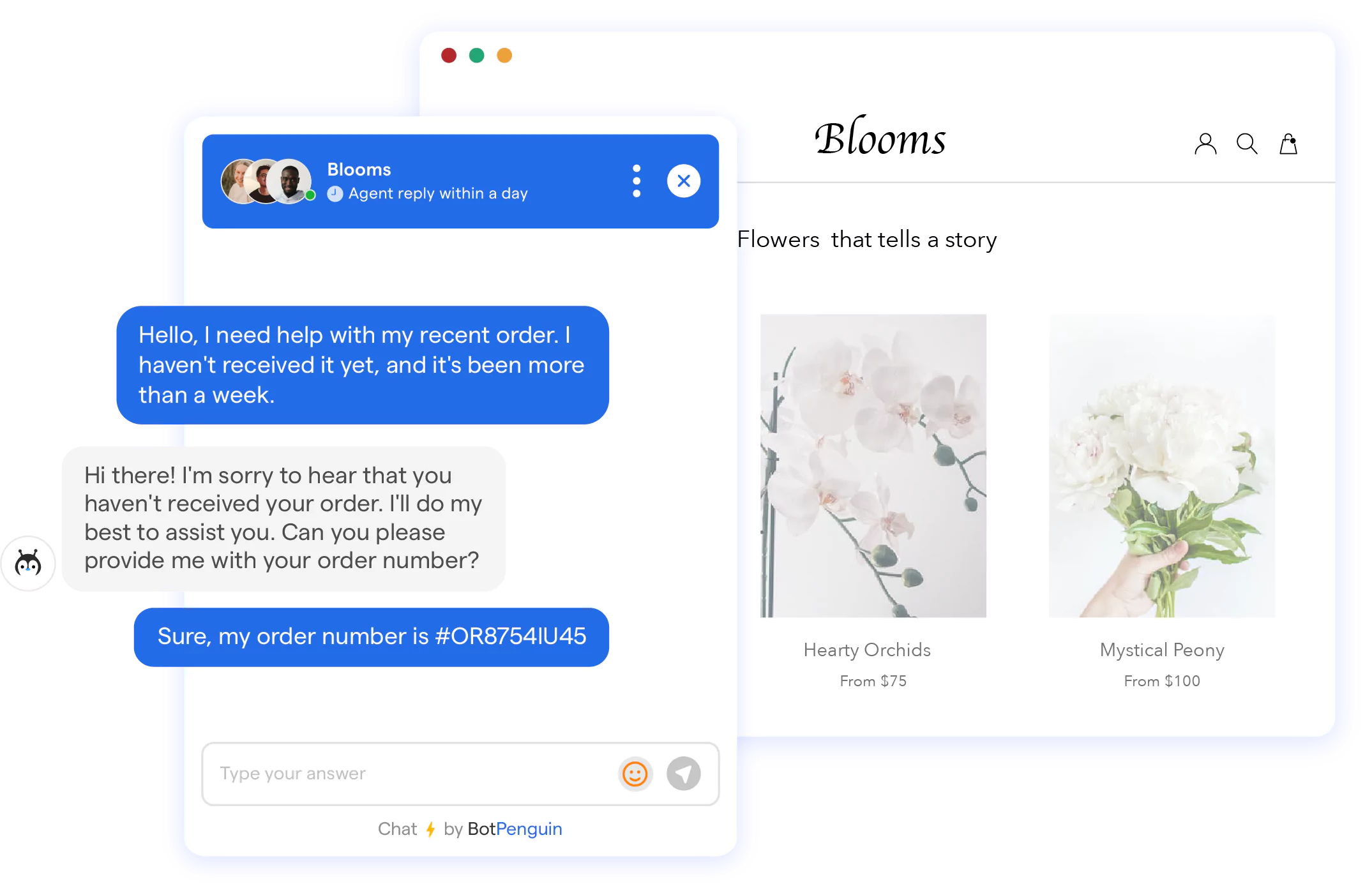
By harnessing natural language processing and machine learning, chatbots can decipher and handle customer requests, dispense pertinent information, or execute tasks instantaneously.
This eradicates the necessity for human involvement in each customer interaction, guaranteeing a smooth and effective support experience.
Why are Chatbots Important in Customer Service?
Chatbots play a crucial role in modern customer service. Let's delve into why they are invaluable business assets:
Instantaneous and Round-the-Clock Support
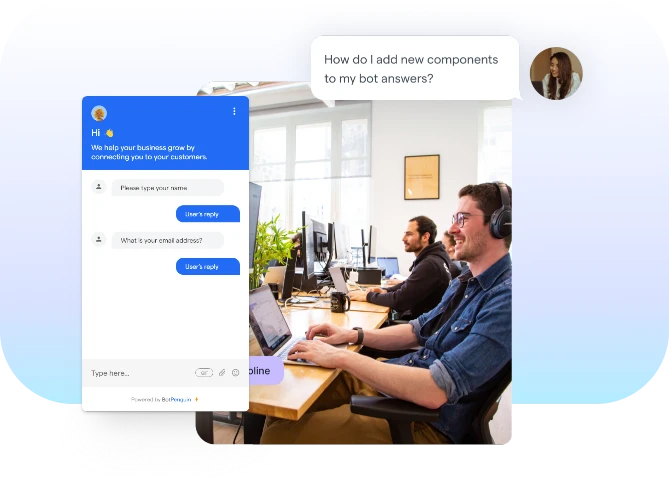
Customer support chatbots are available 24/7, ensuring customers can get assistance whenever needed.
Unlike traditional customer service, which often operates within specific working hours, chatbots are always ready to respond promptly.
This level of responsiveness eliminates customer frustration and provides a positive experience.
Efficiency and Scalability
Chatbots excel in efficiency and scalability, handling multiple inquiries simultaneously without compromising quality.
Chatbots provide consistent and accurate responses to customer queries, unlike human agents, whose time constraints and human error may be limited.
As your business grows, chatbots can seamlessly scale to handle increased customer demands without additional resources.
Personalized Engagement
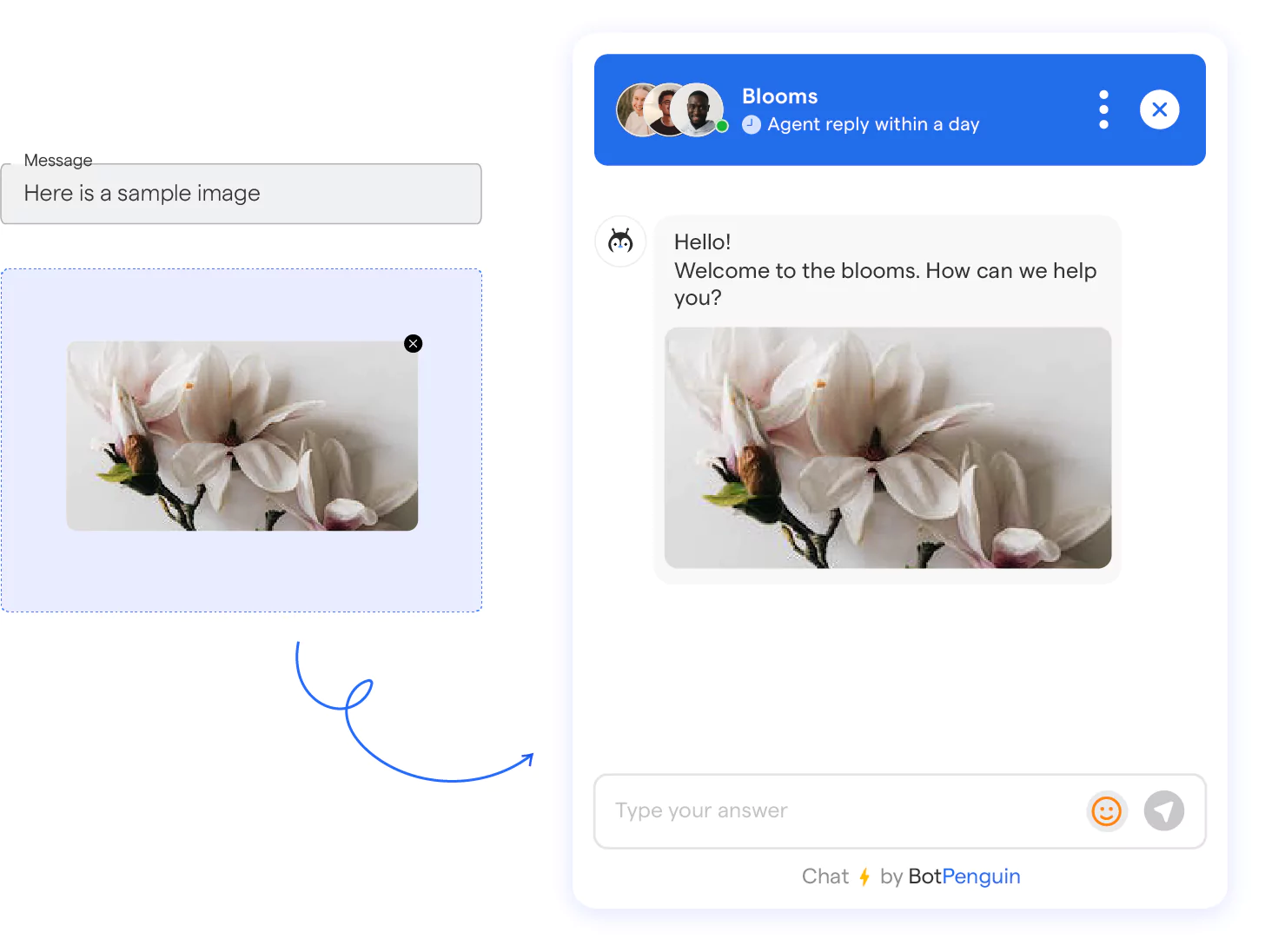
Customers crave personalized experiences. Chatbots excel at providing tailored interactions based on individual preferences, purchasing history, and browsing behavior.
By analyzing customer data, chatbots can offer personalized recommendations, suggest relevant products or services, and create a more engaging connection with customers.
This personal touch not only increases client happiness but also increases loyalty.
Time and Cost Savings
Recruiting and training customer support agents can be time-consuming and expensive. On the other hand, chatbots offer a cost-effective alternative.
Once implemented, chatbots become a 24/7 workforce that requires minimal maintenance and incurs significantly lower costs than a team of human agents.
By automating routine and repetitive tasks, chatbots free up valuable time for human agents to focus on more complex and strategic customer inquiries.
Data and Insights
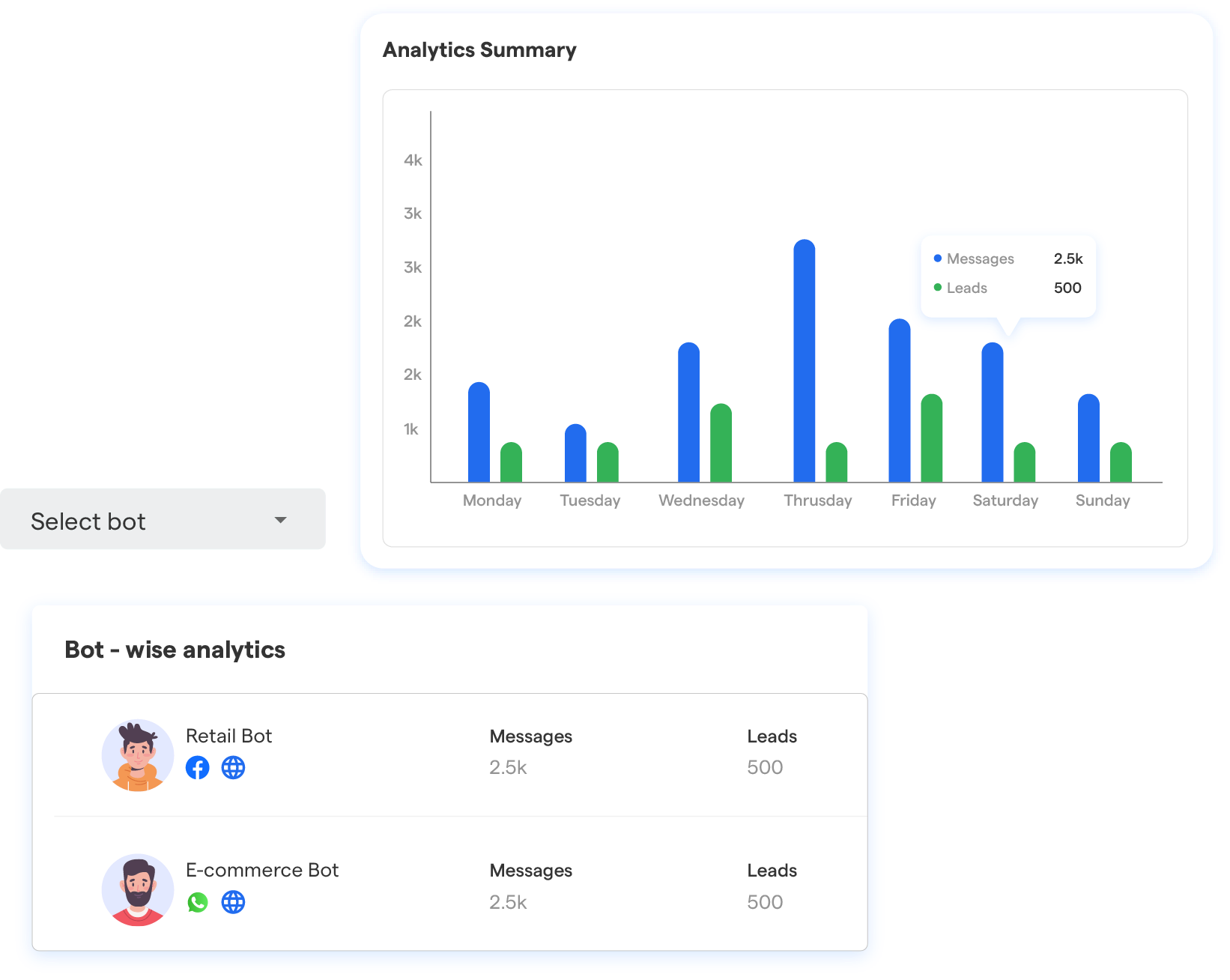
Customer interactions yield valuable data, providing insights into preferences, pain points, and common issues.
Chatbots are crucial for collecting and analyzing this data, offering actionable insights to improve products, services, and the overall customer experience.
Leveraging data-driven analytics, businesses can proactively address customer needs and concerns with informed decisions.
Challenges Addressed by Chatbots in Customer Service
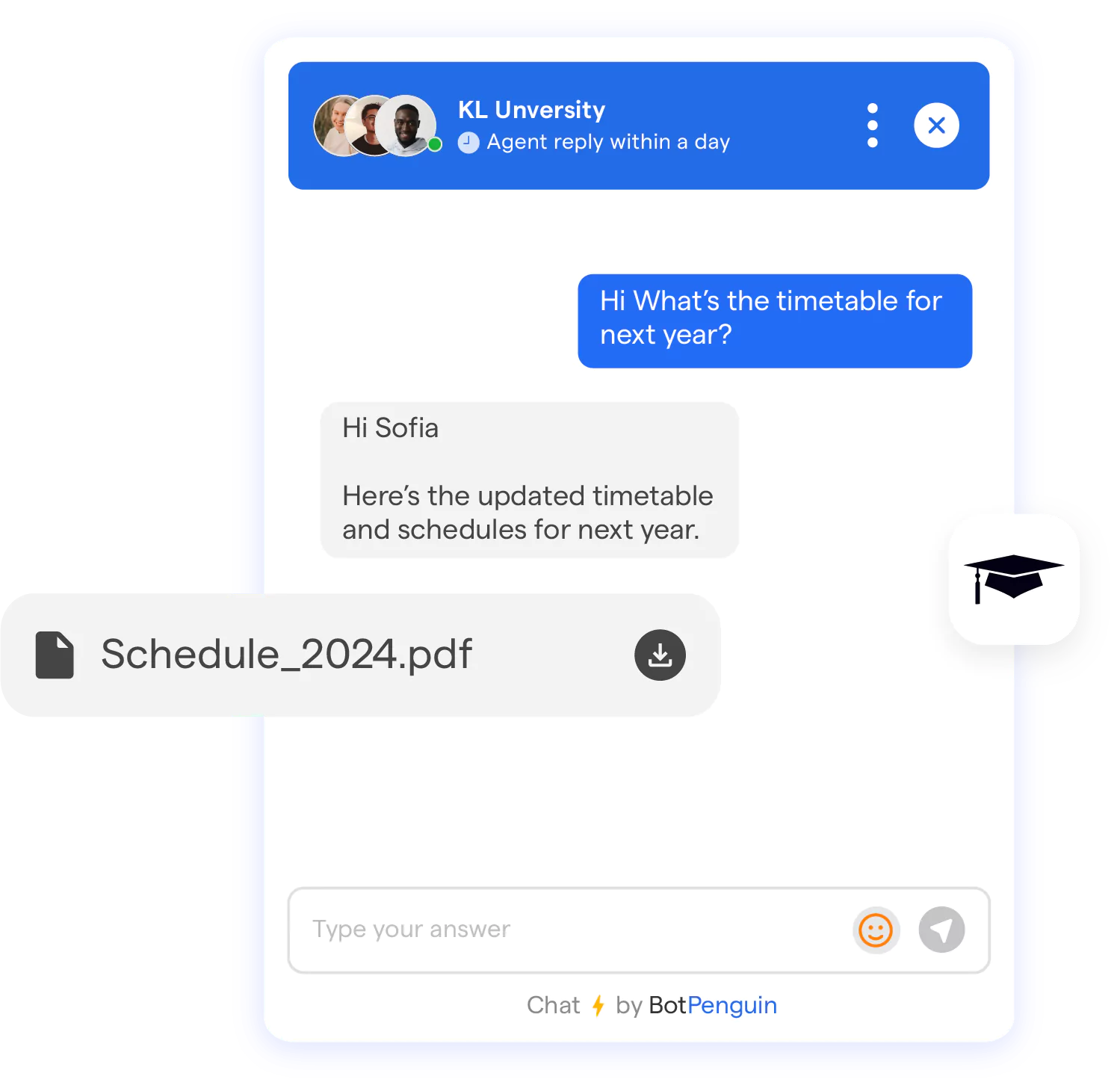
Customer service is a critical facet of any business, with customer satisfaction being the linchpin for retaining a loyal customer base.
However, traditional customer service methods often demand significant time and resources.
Here's where chatbots step in, providing a solution to tackle the diverse challenges businesses encounter in customer service.
Providing 24/7 Support
One of the primary challenges businesses face is providing round-the-clock customer support.
Hiring employees to work in shifts can be costly and may only always ensure immediate assistance.
Chatbots, however, are available 24/7, providing instant customer support, regardless of the time of day.
Handling Frequently Asked Questions (FAQs)
Another challenge is dealing with many frequently asked questions. Answering these questions manually can reduce the efficiency of customer service agents.
Chatbots can be programmed to respond instantly to common queries, freeing up the agents' time to handle more complex customer issues.
Dealing with a High Volume of Customer Inquiries
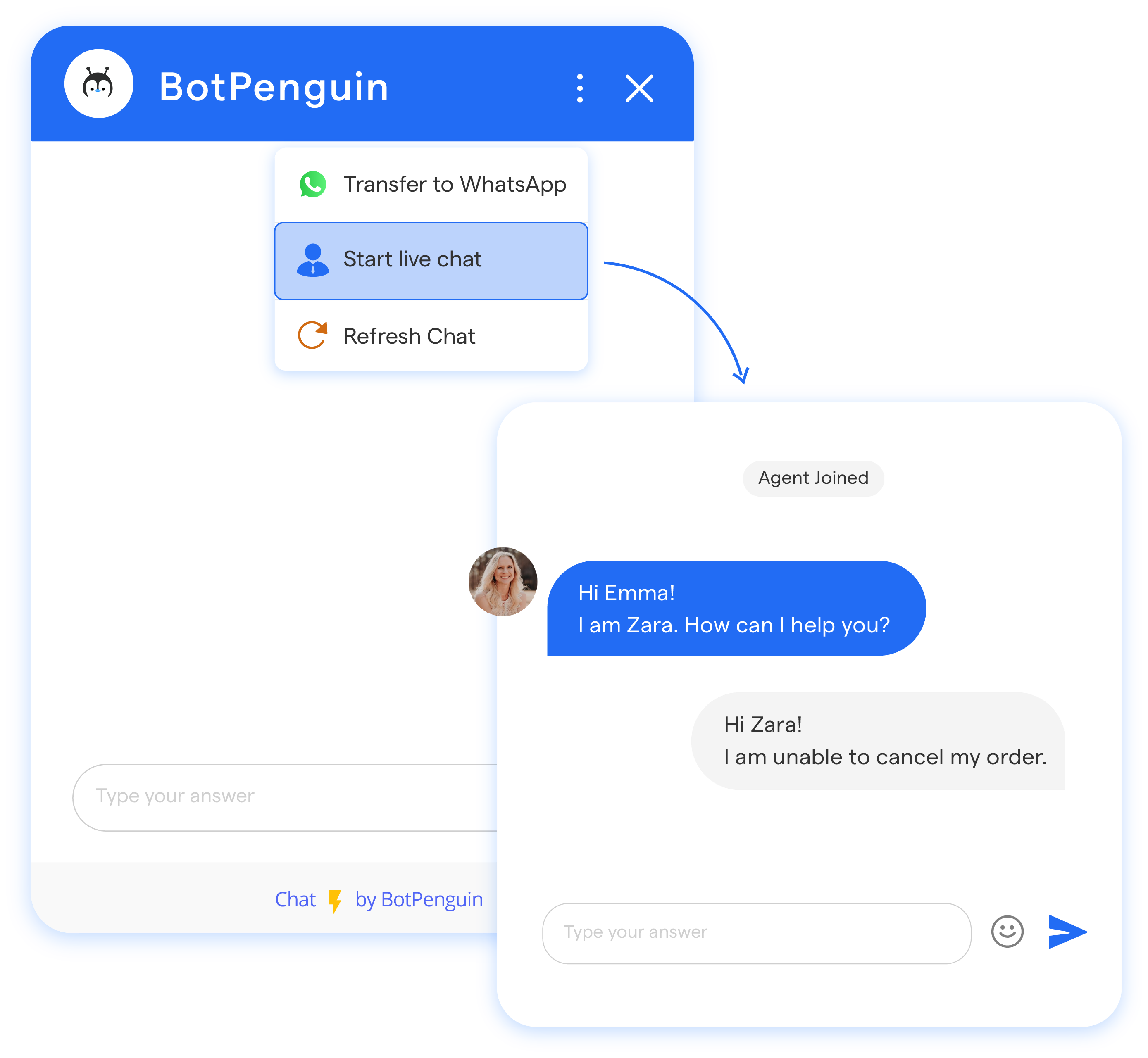
As businesses grow, customer inquiries also increase. Managing this high volume of inquiries can be overwhelming for customer service teams.
Chatbots can handle many inquiries simultaneously, ensuring no customer is left waiting for a response.
Language Barrier and Localization
In today's globalized world, businesses often interact with customers worldwide. Language barriers can pose a significant challenge in providing effective customer service.
Chatbots can be designed to support multiple languages, breaking down language barriers and catering to customer needs in their preferred language.
Suggested Reading:
10 Must-Have Customer Support Automation Tools in 2024
Cost-effective Global Support
Expanding customer support to a global scale can be expensive, particularly when setting up call centers in different locations.
Chatbots provide a cost-effective solution as they can handle customer inquiries worldwide. This eliminates the need for multiple call centers, reducing overhead costs.
How Chatbots Solve Specific Business Problems?
The versatility of chatbots extends beyond addressing challenges; they also provide solutions to specific business problems, ultimately improving efficiency and customer satisfaction.
Reducing Cart Abandonment

Cart abandonment is a common problem businesses need help with in e-commerce.
Chatbots can intervene at critical moments during checkout, offering assistance and resolving any issues that may lead to abandonment.
Chatbots can guide customers through the purchase process by providing real-time support and increasing conversion rates.
Improving Sales Conversion Rates
Chatbots can act as virtual sales representatives, interacting with customers and guiding them through sales.
Chatbots can significantly improve sales conversion rates by providing personalized recommendations, answering questions, and addressing concerns.
Suggested Reading:
BotPenguin: The Ideal Choice for Customer Support Chatbot
Handling Customer Complaints and Disputes
Customer complaints and disputes are inevitable in any business. Prompt and efficient resolution of these issues is crucial to maintaining customer satisfaction.
Chatbots can handle the initial stages of complaint resolution by capturing relevant information and routing the issue to the appropriate department.
This streamlines the complaint-handling process and ensures timely responses.
Enhancing Lead Generation and Qualification
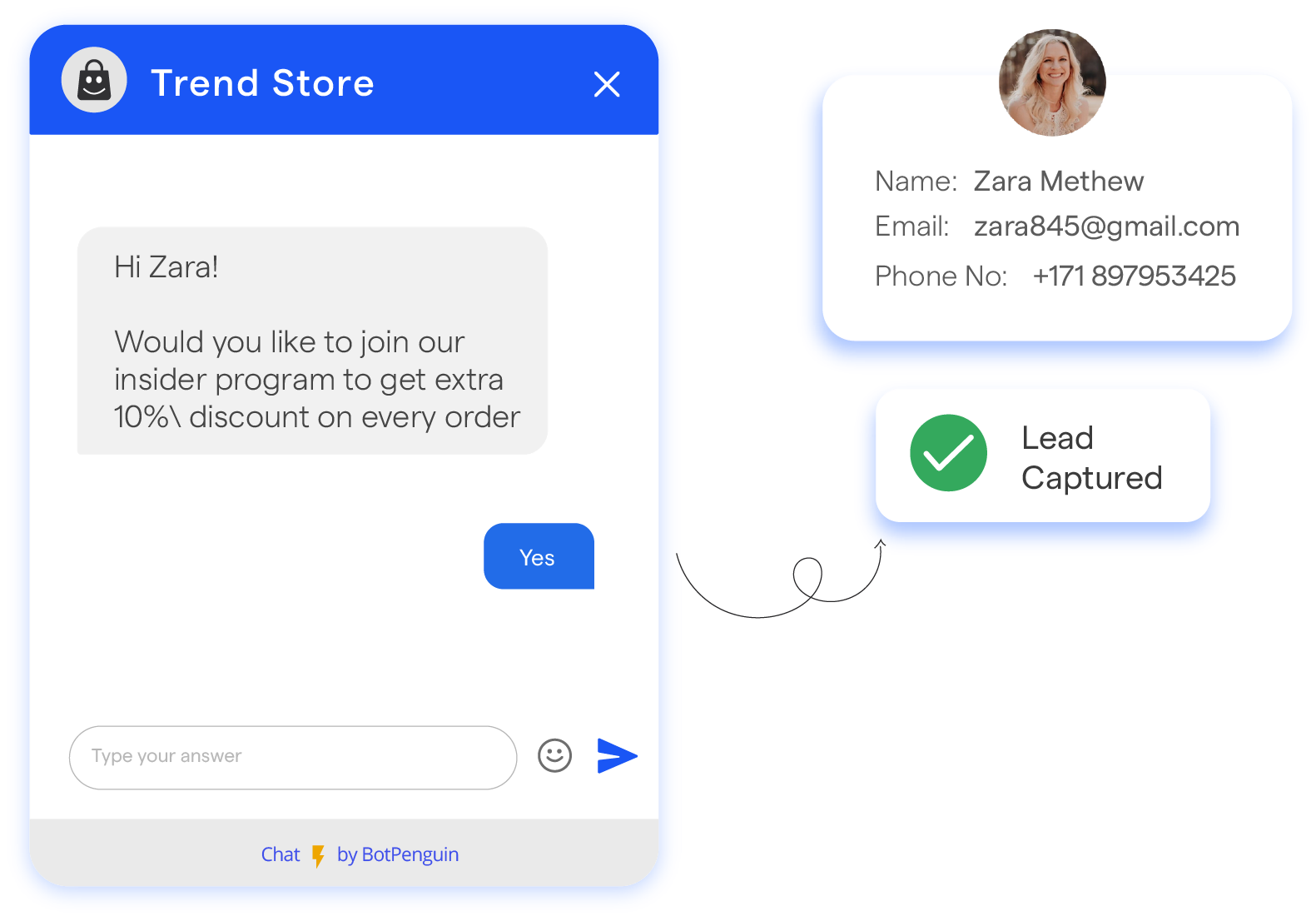
Lead generation and qualification are essential to any business's sales funnel.
Chatbots can engage potential customers, gather information, and qualify leads based on predetermined criteria.
This automation streamlines the lead generation process, ensuring sales representatives focus on high-quality leads.
Streamlining Order Tracking and Delivery Updates
Customers often seek information about the status of their orders and delivery updates. Manually tracking and providing this information can be resource-intensive.
Chatbots can automate the process by integrating with order tracking systems, allowing customers to conveniently receive real-time updates on their orders.
Future Trends and Innovations in Customer Support Chatbots
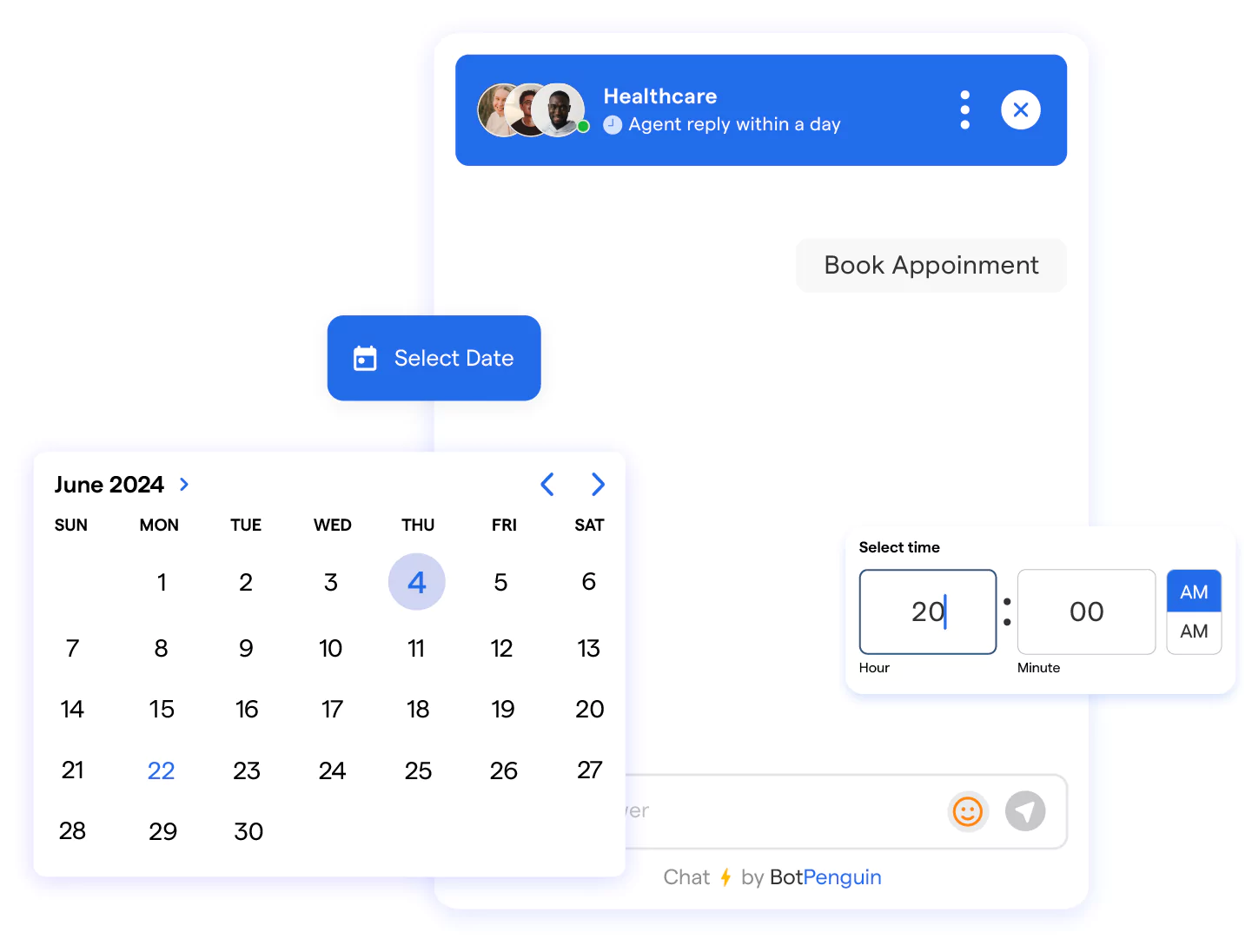
Customer support chatbots have revolutionized how businesses interact with customers.
As technology advances, new trends and innovations are emerging, further enhancing the capabilities and effectiveness of customer service bots.
This section will explore some exciting future trends in customer support chatbots.
Integration with Voice Assistants and Smart Devices
Voice assistants like Siri, Alexa, and Google Assistant have become integral to our lives. The integration of chatbots with these voice assistants and smart devices is a trend that holds great potential for customer support.
Imagine interacting with a chatbot using your voice or getting instant support on your smartwatch. This integration opens up new possibilities for seamless and convenient customer service experiences.
With voice-enabled chatbots, customers can ask questions, raise concerns, and receive personalized assistance, all without the need to type. This advancement not only enhances accessibility but also makes customer interactions more natural and intuitive.
Integrating chatbots with smart devices also allows for proactive notifications, such as order updates or appointment reminders, keeping customers informed without needing manual intervention.
Advancements in Natural Language Processing and Machine Learning

Natural language processing (NLP) and machine learning (ML) are the backbone of chatbot intelligence.
As these technologies continue to evolve, chatbots are becoming increasingly capable of understanding and responding to customer queries in a human-like manner.
This advancement in NLP allows chatbots to comprehend complex sentences, slang, and even emotions, enabling more meaningful interactions.
Machine learning plays a crucial role in continuously improving chatbot performance. Chatbots can gather valuable data and learn from every customer interaction, refining their responses and suggestions over time.
This adaptive learning process contributes to more accurate and personalized customer support.
Personalized Chatbot Experiences
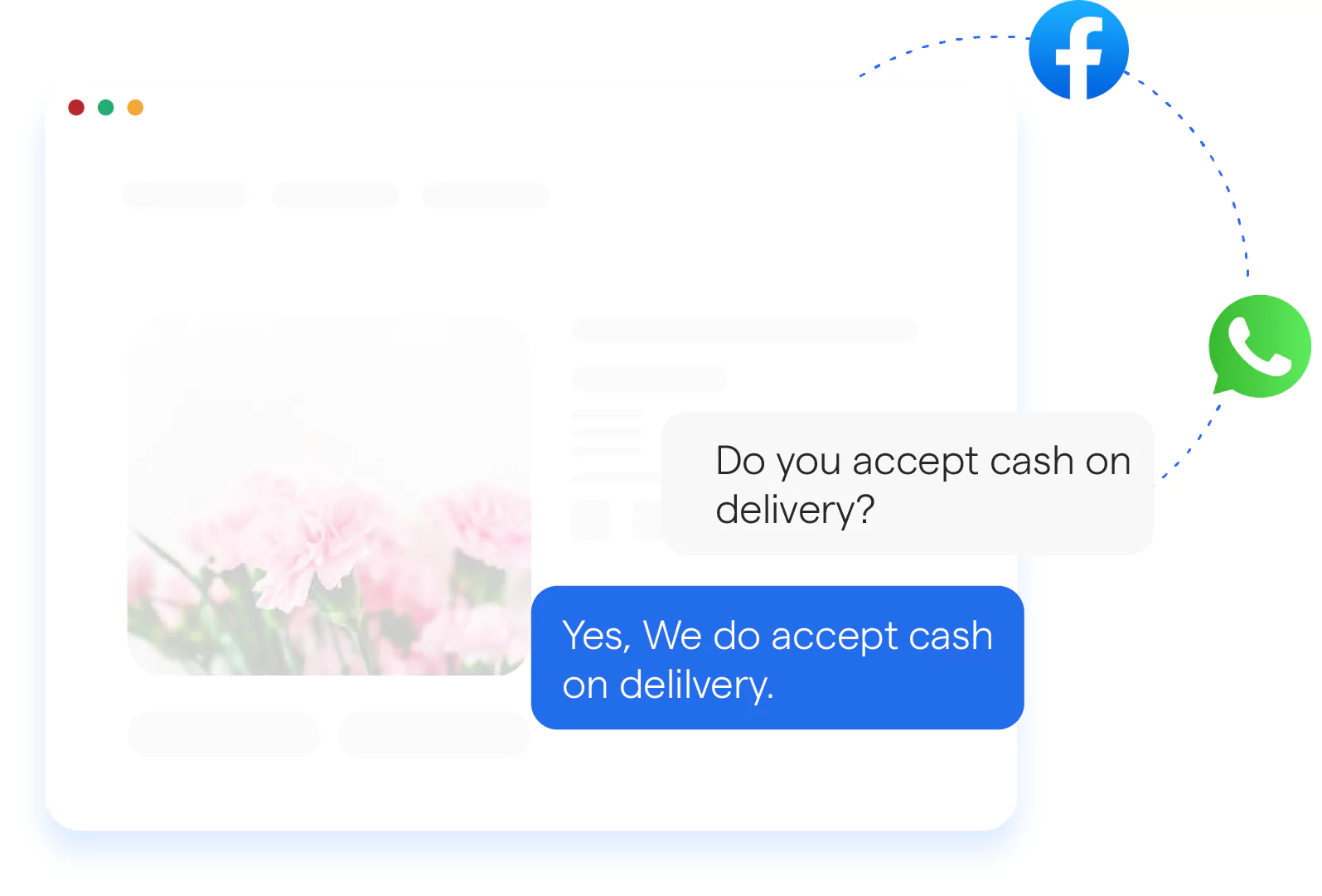
Personalization is key to delivering exceptional customer experiences. In the future, chatbots will focus on providing personalized interactions based on individual customer preferences.
By analyzing customer data, such as past purchases, browsing behavior, and demographic information, chatbots can tailor their responses and recommendations to each customer's specific needs and interests.
For instance, a chatbot in an online retail store could suggest personalized product recommendations based on a customer's previous purchases and browsing history.
By understanding customer preferences and anticipating their needs, chatbots can create highly engaging and relevant experiences.
Chatbots can also utilize personalization to build emotional connections with customers.
By incorporating a friendly and conversational tone, using humor, and showing empathy, chatbots can create a more human-like interaction, fostering trust and loyalty.
Conclusion
Since you’ve made it this far, you’re interested in using a Customer Support Chatbot for your business.
And why not? You’ll be able to offer stellar customer support to your customers, solving their problems on the spot and providing them with tailored solutions & personalized recommendations.
Now, the question is where to begin. Luckily, you’re in the right spot. It’s the time we introduced you to your guide for this blog- BotPenguin, an omnichannel chatbot platform.
BotPenguin helps you create a customer support chatbot with drag & drop features without any coding.
You can integrate your chatbot with 60+ platforms like GoHighLevel, Hubspot, Bitrix24, ZohoCRM, Freshworks, etc.
What’s more? With our ChatGPT Integration, you’ll be able to generate human-like responses to customer queries 24/7.
What’s the catch? Nothing. You can get started for free, without giving any credit card information.
Want to explore what else you can do with BotPenguin? Sign up and create your first customer support chatbot for free.
Suggested Reading:
Customer Support Chatbot vs Lead Generation Chatbot
Frequently Asked Questions (FAQs)
What is the difference between an AI bot and a chatbot?
An AI bot is a broader term encompassing all forms of artificial intelligence.
At the same time, a chatbot specifically refers to AI-powered programs designed to engage in text or voice-based conversations with users, making them a subset of AI bots.
Which industry uses chatbots the most?
Chatbots have extensive use in retail, finance, customer service, and healthcare industries.
How many companies use chatbots for customer service?
The exact number of companies using chatbots for customer service varies, but adoption is widespread and continues to grow. For up-to-date statistics, consult recent sources.
How do chatbots assist in collecting customer feedback and surveys?
Chatbots can automate feedback collection and conduct surveys, improving products and services.
Can chatbots assist with order processing and status updates?
Chatbots are adept at processing orders and providing real-time updates on order statuses, increasing transparency.



